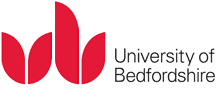About Secondary Science With Biology Pgce in University of Bedfordshire
Develop as a highly qualified, effective and confident teacher of science, able to teach scientific concepts in a variety of inspiring ways.
Build your knowledge and skills in teaching science in secondary schools through subject-specific sessions, lectures and seminars, working independently and collaboratively; and achieve Qualified Teacher Status (QTS).
Intermediate qualifications available:
- Professional Graduate Certificate in Education
Why choose this course?
- Study on a course designed to enable you to join a challenging and rewarding profession – becoming an effective and inspiring teacher who draws on broad subject specific knowledge and secure understanding of teaching and learning theories - with the knowledge and skills to lead learning and initiate change in educational settings
- Explore your understanding of teaching and learning secondary science, as you apply your subject knowledge and expertise to planning teaching and managing the science classroom; honing your skills of critical self-evaluation and improvement
- Develop your creativity and team-working skills, preparing you to influence and lead in educational settings and enhancing your own sense of independence
- Gain confidence in analysing the evidence of your own practical experience during placements in schools, informing your future actions as you evaluate the impact of applying theory to your teaching practice
- Benefit from a qualification that gives you recommendation for Qualified Teacher Status (QTS), enabling you to gain employment in a school, with opportunities for continuous development through further study at MA/MSc, MPhil, PhD and EdD levels.
The University's Bedford campus is home to one of the largest education providers in the UK. We have well-established links with more than 500 schools across the Eastern Region which means that we are constantly at the forefront of educational developments. The quality of our provision is based on a long and established history of teacher education.
Science is an exciting and rapidly progressing subject that is challenging to teach. During the course you will spend around 70% of your time in placement schools developing the skills and experience necessary to teach scientific concepts in a variety of ways.
You will attend subject specific sessions, lectures and seminars designed to develop awareness and understanding of the content of the science curriculum, general professional issues, and practical issues such as lesson planning and assessment. You will also engage with relevant research literature and develop the skills of a reflective and research informed practitioner. You will train to teach science to at least GCSE level with a specialism in biology.
You will obtain Qualified Teacher Status (QTS) and up to 60 Masters level credits
Unit Information – What Will I Learn?
- The Professional Teacher
- The Reflective Teacher*
- The Research Informed Teacher*
- The Subject Specialist (Secondary Science with Biology)
*denotes units that can be assessed at Masters level
To apply for a postgraduate degree (MA/MSc/MBA/LLM) at the University of Bedfordshire you should have a good honours degree (or equivalent qualification) in an appropriate subject from a recognised university or HE institution.
We will also consider candidates with other relevant qualifications or appropriate work experience
- English GCSE Grade C or above (or equivalent)
- Maths GCSE Grade C or above (or equivalent)
- Enhanced Disclosure and Barring Service (DBS) check
- You must possess a minimum 2:2 honours degree or equivalent in the subject for which you are applying to teach or a degree of which at least 50% is in that subject
- A levels in the subject and/or related subjects are desirable
- Applicants whose first language is not English and who do not have GCSE grade C in English need to have IELTS with an average score of at least 6.0
- All entrants must have passed the professional skills tests prior to entry
- TOEFL iBT - Listening: 17, Reading: 18, Speaking: 20, Writing: 17
- Pearson PTE - Listening: 51, Reading: 51, Speaking: 51, Writing: 51
University of Bedfordshire Highlights
| Type |
Public |
| Campus Setting |
Urban |
| Application portal |
Online |
| Academic Calendar |
Semester-based |
| Mode of Payment |
Online via e: vision account; Debit and Credit cards |
| Acceptance Rate |
70-80% |
Bedfordshire University Average Tuition Fees And Other Expenses
Here is a table showing the determined the average cost of attendance (Estimated Tuition fee and Living cost)
| Level |
Total Fee |
| Undergraduate |
£12,350 (p.a.) |
| Post Graduate |
£12,750 (total) |
| MBA |
£14,000 (total) |
| Average cost of Living |
£1,200–1,500. |
Bedfordshire University Application process
Application Fee: £18 (UCAS)
Some necessary supporting document needs to be attached with the application
- A complete application form along with the attached signature of the applicant.
- Proof of English Proficiency Language
- TOEFL (iBT): Listening and Writing: 17; Reading: 18; Speaking: 20.
- IELTS: 6.0 (5.5 in each Section)
- Pearson PTE: 52-54
- Official Academic qualifications and certificates.
- Copy of valid passport details.
- Submit the copies of UK visa as well as the documents of any previous visa refusals.
Application Deadline: No such specific deadline for direct application submission.
Note: However, applicants are advised to complete and submit the application before 30 days of the start of the course.
Here is a table showing the determined the average cost of attendance (Estimated Tuition fee and Living cost)
